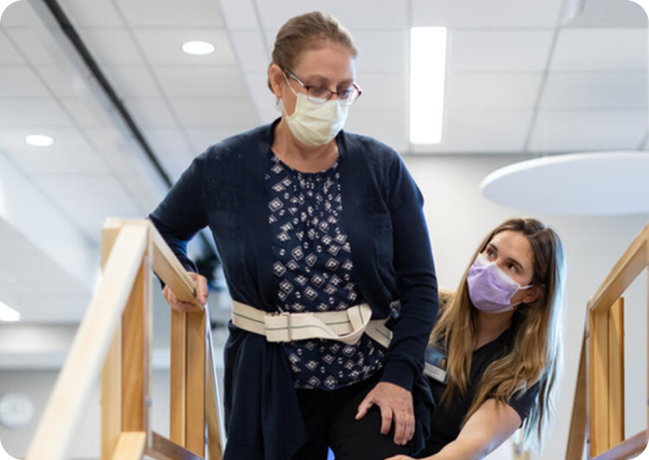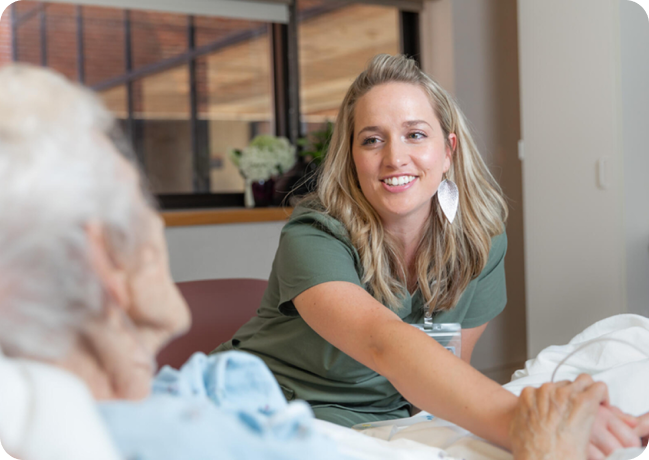Hospital Visit


Stay Connected
Cell phone
Tablet
Charger for cell phone
Charger for tablet


Keep your mind active
Hearing aids
Glasses
Favorite games or coloring activities


Sleep and Routine
Eye mask
Ear plugs
Try to stick to your normal schedule as much as possible


Familiar comforting items
Favorite photos of family, pets
Favorite blanket or pillow
Favorite music to play


What to bring to hospital? Do you have these items? Go through our checklist to be prepared for anything.

Help with your hospital stay
Managing Delirium in Hospital
It is important to know that delirium can cause some changes in behaviour.


More Information
While your family member, loved one or partner is in hospital you can encourage them to:
Have a normal sleep pattern
Stay awake during the day by opening the curtains to let sunlight in.
Get out of bed and sit in a chair during the day wherever possible.
Do daily tasks to take care of themselves, such as going to the bathroom.
Do mental exercises, such as Sudoku or crossword puzzles.
Eat and drink when possible and assist them.
Have their glasses or contact lenses, hearing aids, or both in place.
Ask their friends to visit, if they can.
Use a calendar and a clock to remind them of the date and time of day.
Try not to agree or disagree about any incorrect ideas – it may be real for them.
Talk about current events or things inside or outside their room.


You can also support them by:
Telling them where they are and why they’re in the hospital.
Reminding them that they’re in a safe place, and their care team is there to take care of them.
Reading them books or letters.
Playing them music they like or calming music.
Showing them family photos and bringing them familiar items from home, such as a favourite blanket or book
If you have any concerns about the person you are visiting, don’t hesitate to discuss with the nurse.
Clearer Days Delirium Support
Acknowledgement of Country
Clearer Days Delirium Support acknowledges the Traditional Custodians of the lands around Australia and pay our respects to Elders past and present.
© 2025. All rights reserved.












